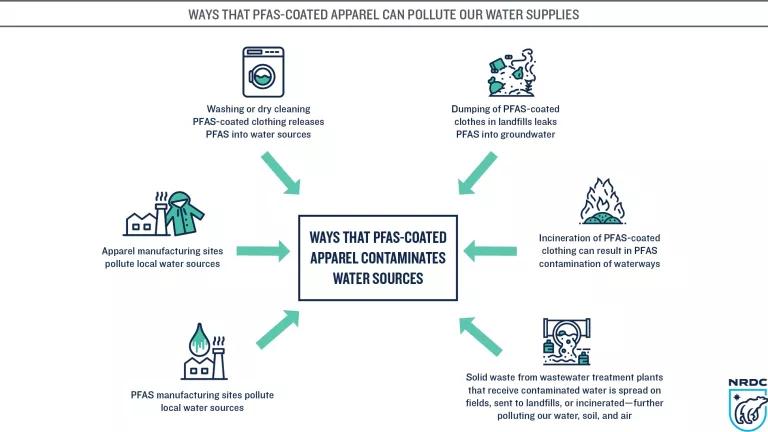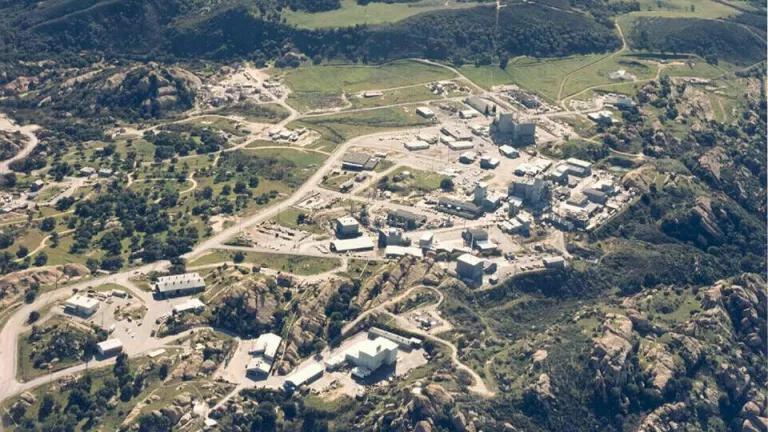CA Bill to Reduce Toxic PFAS Exposures Passed by Legislature
The California Legislature took an important step to protect Californians from toxic, “forever” PFAS chemicals by passing Assembly Bill 1200 (Ting) today. Having passed on the Senate floor 36-0, the bill now goes to the Governor.

People are exposed to PFAS from multiple sources.
The California Legislature took an important step to protect Californians from toxic, “forever” PFAS chemicals by passing Assembly Bill 1200 (Ting) today. Having previously passed on the Senate floor 36-0, the bill now goes to the Governor.
AB 1200 would help make our food and our environment safer by banning the use of toxic, “forever” PFAS chemicals in paper-based food packaging. The bill builds on food-packaging legislation passed last year in New York and last year’s passage of SB 1044 in California, phasing out PFAS in firefighting foam. AB 1200 would also require disclosure of the use of chemicals like PFAS and bisphenols (BPA, BPS, etc.) in cookware such as pots and pans. Finally, it would ban misleading claims on cookware such as “PFOA-free” or “BPA-free” when other chemicals in the same chemical family have been used on the products.
PFAS are a large class of man-made chemicals (including thousands of individual chemicals) used widely in industrial processes and consumer products such as non-stick cookware and food packaging, clothing, carpets, and cosmetics for their water resistant and grease resistant properties. Unfortunately, PFAS do not break down easily, can spread quickly through the environment, and are associated with a long list of harmful health effects, including cancer, immune system suppression (including interference with vaccine response), and adverse developmental effects. Independent scientists and authoritative bodies, including California’s Department of Toxic Substance Control, have concluded that PFAS, as a class, pose a serious environmental and public health threat.
In California, water sources for water systems serving up to 16 million people have already been found to be contaminated with PFAS. Given that the state still has to conduct tests on many more drinking water sources, the number is likely much higher. A new NRDC report shows that much of the PFAS pollution is in or near communities that are already disproportionally impacted by pollution of all kinds. The report also outlines important policy responses that the state must make to protect public health, including phasing out all unnecessary uses of PFAS as quickly as possible.
PFAS in food packaging and other products can lead to further contamination of water (and the environment), in addition to direct exposure for consumers and workers from the use and manufacturing of the products. Communities near production and disposal facilities are particularly likely to face exposure. This is why we must stop adding to the problem where we can and why AB 1200 is an important part of the response to the problem.
AB 1200 also showcases the way forward, with the legislature and California administrative programs—like the DTSC Safer Consumer Products program—acting in concert. The legislature can move quickly on product categories where it’s clear that PFAS are not needed—such as paper-based food packaging where alternatives exist and are in use—while the Safer Consumer Products program can focus its technical resources on product categories which are more complex to phase out. In the meantime, the Water Board must improve monitoring for PFAS and develop health protective drinking water standards to protect Californians from PFAS.
Use of PFAS now can have consequences for decades to come. Because of the health harms associated with them, and the difficulty of cleaning up PFAS, it is imperative that we act now and phase out unnecessary uses of these toxic chemicals.
We urge the Governor to sign the bill.



